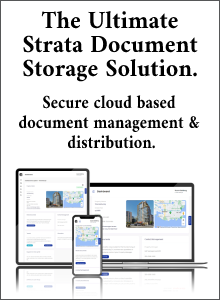Many strata corporations are unaware of the requirements to adhere to the Personal Information Protection Act. As a strata owner, it’s important to be aware of your privacy rights and the privacy rights of your neighbours. This includes understanding when you can be photographed or videotaped, and when you can be asked for your personal information. Here are some privacy guidelines for strata corporations and strata owners.
1. What is a strata corporation and what are its responsibilities to its members and residents
A strata corporation is a legal entity created when a strata property is developed. It is responsible for the management and maintenance of the common areas and assets of the strata development, and for representing the interests of the strata owners. The strata corporation must comply with privacy laws, such as the Personal Information Protection Act (PIPA), and obtain consent from members before collecting, using or disclosing their personal information. In addition, the strata corporation must maintain adequate insurance coverage for the common areas and assets of the strata property.
2. The importance of privacy for strata corporations and their members
In today’s world, privacy is more important than ever. There are laws in place to protect individuals from having their personal information collected and used without their consent. These laws apply to strata corporations and their members.
Strata owners have a right to expect that their privacy will be respected. The Personal Information Protection Act (PIPA) sets out rules for how businesses must collect, use and disclose personal information. consent. Strata corporations must ensure that they comply with PIPA when handling personal information about strata owners. This includes ensuring that personal information is only collected for legitimate purposes, and that it is used and disclosed in a way that is consistent with the strata owner’s expectations.
Failure to comply with PIPA can result in significant penalties, so it is important for strata corporations to make privacy a priority.
3. Privacy guidelines for strata corporations and their agents when it comes to collecting, using, and disclosing personal information
When collecting personal information, strata corporations and their agents must ensure that the information is necessary for the purposes of managing the property or providing services to residents. Personal information should only be collected from individuals who have consented to its collection. Strata corporations and their agents must also take reasonable steps to keep personal information accurate and up-to-date. Strata corporations must also take reasonable steps to destroy or de-identify personal information that is no longer needed.
Disclosing personal information to third parties is only permitted in certain circumstances, such as when required by law or with the individual’s consent. When disclosing personal information to third parties, strata corporations must take reasonable steps to ensure that the information is accurate and up-to-date, and is only disclosed for legitimate purposes.
4. How to protect the personal information of residents in a strata corporation
Strata corporations must take steps to protect the personal information of residents from unauthorized access, use, or disclosure. There are several measures that a strata corporation can take to protect the privacy of residents, such as:
- Restricting access to personal information to authorized staff or council members only
- Securely storing personal information in a locked filing cabinet or server room
- Shredding or destroying personal information when it is no longer needed
- Creating and enforcing policies and procedures for the collection, use, and disclosure of personal information
- Training staff on privacy and security procedures
By taking these steps, strata corporations can help to ensure that the personal information of residents is protected.
5. Tips for strata corporations and their agents on how to keep personal information secure
As the world becomes increasingly digital, strata corporations and their agents must take care to protect the personal information of residents. One way to do this is to store data on secure servers. Information should only be accessed with the consent of the individual concerned, and all data should be encrypted to protect it from hackers. In addition, strata corporations and their agents should take care to protect online information. Computers should be password protected and kept in a secure location.
Any physical copies of personal information should be shredded or destroyed when no longer needed. By taking these simple steps, strata corporations can help to keep personal information safe and secure.
6. Resources for further reading on privacy and data protection
There are a number of excellent resources available for anyone interested in learning more about privacy and data protection. The Canadian Home Owners Association (CHOA) has published a series of privacy guidelines that provide a great overview of the issue. The BC Government’s Office of the Information and Privacy Commissioner also has a number of helpful resources on their website, including the “Privacy Guidelines For Strata Corporations and Strata Agents’ publication. These guidelines will help strata corporations and strata agents in discharging their duties under the Strata Property Act (“SPA”) in a manner that respects the privacy of owners and tenants and promotes transparency in the operation of strata corporations. Finally, the Vancouver Island Strata Owners Association (VISOA) has published a paper on “Privacy Guidelines for Strata Corporations and Strata Agents” which is definitely worth a read.
Not Legal Advice - The material provided on the StrataPress website is for general information purposes only. It is not intended to provide legal advice or opinions of any kind and may not be used for professional or commercial purposes. No one should act, or refrain from acting, based solely upon the materials provided on this website, any hypertext links or other general information without first seeking appropriate legal or other professional advice. These materials may have no evidentiary value and should be checked against official sources before they are used for professional or commercial purposes. Your use of these materials is at your own risk.

